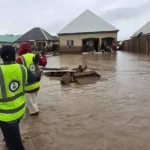Southern Africa could continue to suffer dangerous levels of extreme heat even if the world hits net-zero emissions targets by 2050, new research has shown.
A new study by climate scientists from the University of Melbourne and Australia’s Commonwealth Scientific and Industrial Research Organisation (CSIRO) suggests that, while heat extremes are expected to decline in most regions after global net zero is achieved, southern Africa may remain a hotspot.
The researchers warn that despite climate progress globally, the region’s vulnerability to persistent high temperatures could pose long-term challenges for food security, water availability and public health.
The region shows mixed signals in climate models. Some simulations project a welcome drop in extreme heat once net zero is achieved. Others suggest that scorching temperatures could persist, raising concerns about long-term planning for agriculture, water access and public health.
The researchers used climate models to simulate what might happen 100 years after global emissions are balanced by carbon absorption through natural and human-made sinks. While most regions see a steady decline in heat extremes, southern Africa’s fate remains uncertain. Differences in soil moisture, rainfall patterns, and land surface conditions could either cool or worsen the local climate.
Cape Town’s “Day Zero” drought and widespread heatwaves across Zambia and Zimbabwe have already shown how vulnerable the region is to rising temperatures. The findings underline the urgent need for adaptation strategies that go beyond emission cuts.
Still, there is cause for hope. Countries like South Africa are investing in early warning systems, nature-based solutions and more climate-resilient infrastructure. Scientists are also calling for deeper regional data collection to refine models and improve forecasts.
Researchers stress that uncertainty should not delay net-zero efforts. Rather, it should drive stronger local planning and regional cooperation to manage risks.
“Preparing for a range of climate futures is the smart way forward,” said the authors.










